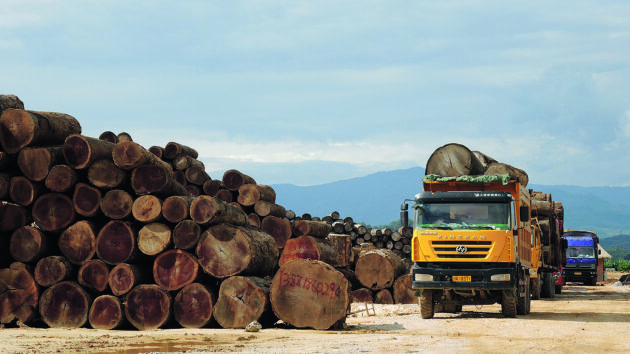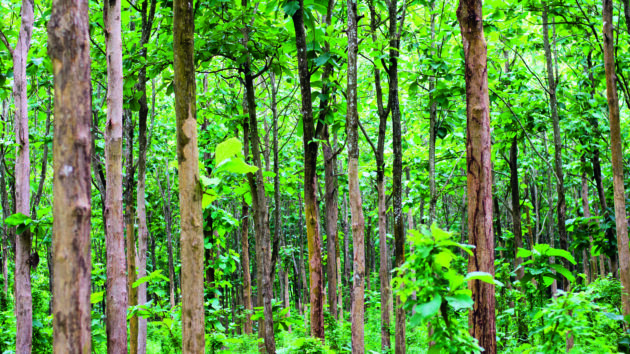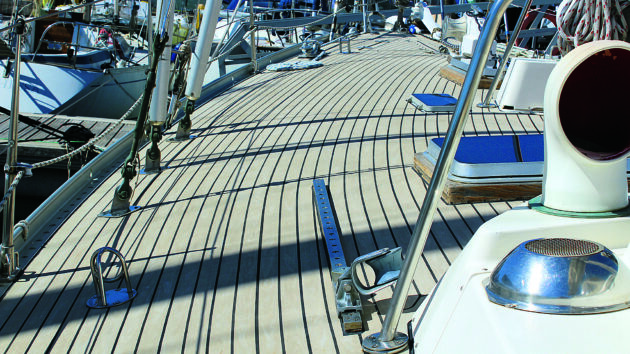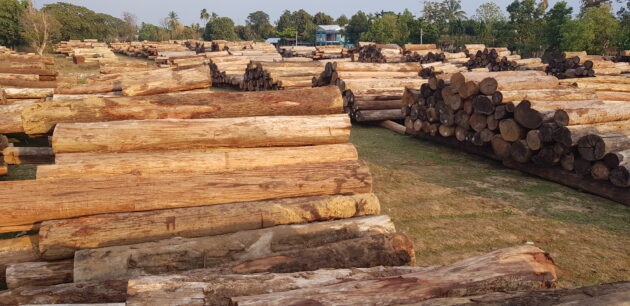In a significant UK court ruling, luxury yacht manufacturer Sunseeker has been imposed a hefty £240,000 fine for utilizing illegal ‘blood’ teak sourced from conflict-ridden Myanmar on certain yachts it constructed.
During proceedings at Bournemouth Crown Court on 22 November, Judge Jonathan Fuller KC levied total fines and costs amounting to £358,759.64 against Sunseeker International Ltd, based in Poole, for 11 particular imports of the prohibited Myanmar teak.
The court learned that Sunseeker’s timber imports included teak from Myanmar, wenge from Africa, and European oak, with a total worth exceeding £60,000.
Although Sunseeker’s sentencing pertained to 11 specific imports, the court was informed of the existence of numerous additional instances.
This appears to be the first prosecution under the newly established UK Timber Regulation legislation, which replaced the EU Timber Regulation following Brexit.
Taking into account the firm’s early guilty pleas to the charges and hearing mitigation, the judge fined Sunseeker £240,000, ordered a confiscation of just under £67,000, as well as prosecution costs of £51,000 and a victim surcharge of £190.

Fresh teak logs, Nongdao, Myanmar, June 2015
ENVIRONMENTAL INVESTIGATION AGENCY
After the hearing, the London-based Environmental Investigation Agency (EIA), which initially uncovered Sunseeker’s use of illegitimate Myanmar teak in 2018, welcomed the ruling as a landmark achievement in the battle against the illegal trade of Burmese teak.
‘These sentences convey a clear and unmistakable warning to other luxury yacht builders, both in the UK and worldwide, that utilizing blood teak from conflict-affected Myanmar is utterly unacceptable and will result in severe consequences,’ stated Faith Doherty, EIA Forests Campaigner Leader.
‘In addition to enforcing the UK Timber Regulation, the amount of legal proceedings and processes within the judiciary highlights the significance of environmental crime and its impact.’

RFJ1JW Teak is a tropical hardwood tree species placed in the flowering plant family Lamiaceae. Tectona grandis is a large, deciduous
SUNSEEKER ADMITTED GUILT
Sunseeker admitted to the following charges: failing to exercise due diligence as an operator when placing timber products on the market; failing to maintain and assess the due diligence system when placing timber or timber products on the market; and failing to comply with Article 5(1) of the Commission Implementing Regulation (EU) No 607/201 regarding operators’ record-keeping.
Judge Fuller noted that Sunseeker was conscious of forthcoming regulatory changes to timber imports post-Brexit, which transitioned its status from ‘trader’ to ‘operator,’ resulting in a breach of regulations, which he termed a ‘systemic failure.’ He emphasized that the Environmental Investigation Agency (EIA) had warned the company about the risk of illegal teak in its supply chain as early as 2018.
In 2018, the EIA formally alerted Sunseeker’s US distributors to the US Department of Justice after investigations demonstrated that teak traded against the EUTR had infiltrated the company’s supply chains. The US Lacey Act prohibits the importation of goods that violate any foreign law safeguarding or regulating plant species.

Teak deck replacement with Flexiteek on Swan 43 Ketch Elisabeth
In a statement, Sunseeker acknowledged that, following an inquiry by the UK’s Office for Product Safety and Standards (OPSS), it had been fined £358,000 (inclusive of costs and confiscation) for failing to exercise due diligence and related offenses while placing timber or timber products on the UK market, in violation of the Timber and Timber Products (Placing on the Market) Regulations (UKTR).
‘The unintended lapse arose from a legislative change on 1 January 2021, subsequent to the United Kingdom’s exit from the European Union (EU) (Brexit),’ Sunseeker stated.
‘Despite continuing to utilize its existing EU-based supply chain and conducting the very same commercial activity (specifically, procuring timber/timber products from the EU) as it had prior to 1 January 2021, Brexit imposed additional due diligence requirements on Sunseeker whenever it procured timber or timber products from the EU, duplicating the due diligence responsibilities of its EU-based suppliers,’ the statement elaborated.
Sunseeker asserted that it has implemented decisive measures to address the issue, establishing a comprehensive timber procurement policy and a UKTR compliant due diligence procedure.
‘The Sunseeker Board expresses regret over the Company’s failure to fulfill its responsibilities under the UKTR and emphasizes its unwavering commitment to adhering to laws and regulations.’

TIMBER IMPORTS FROM MYANMAR FOUND ILLEGAL
Since 2020, the consensus among enforcement authorities of EU member states has been that conducting adequate due diligence regarding the legal origins of Myanmar timber is unfeasible—implying that all timber imports from Myanmar contravene the EU Timber Regulation (EUTR).
On 1 February 2021, Myanmar’s military seized control in a coup, and the oppressive ruling junta has since been attempting to financially prop itself up through the lucrative export of the nation’s teak, highly sought after by luxury boat makers globally for its resistance to water.
The regime, including the state-run Myanmar Timber Enterprise that manages all sales and exports of teak, has faced sanctions imposed by the EU, UK, and US, effectively rendering all teak imports from Myanmar illegal.
Lionheart Capital, a Miami-based investment firm, and Italian-owned Orienta Capital Partners acquired Sunseeker from Chinese conglomerate Dalian Wanda, which owned the British yacht builder for 11 years for £160 million, as reported by Bloomberg. The group’s global revenue for 2024 is projected to reach £284 million, compared to £269 million in 2023, with a global order book valued at approximately £519 million.

